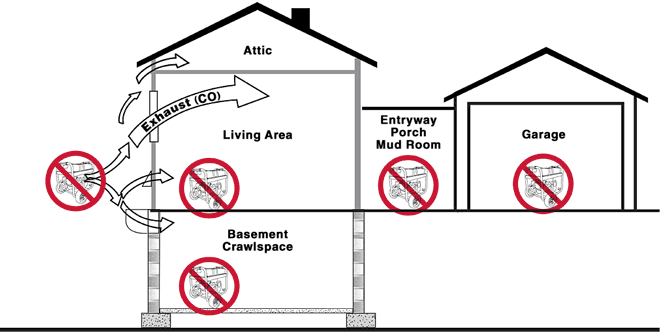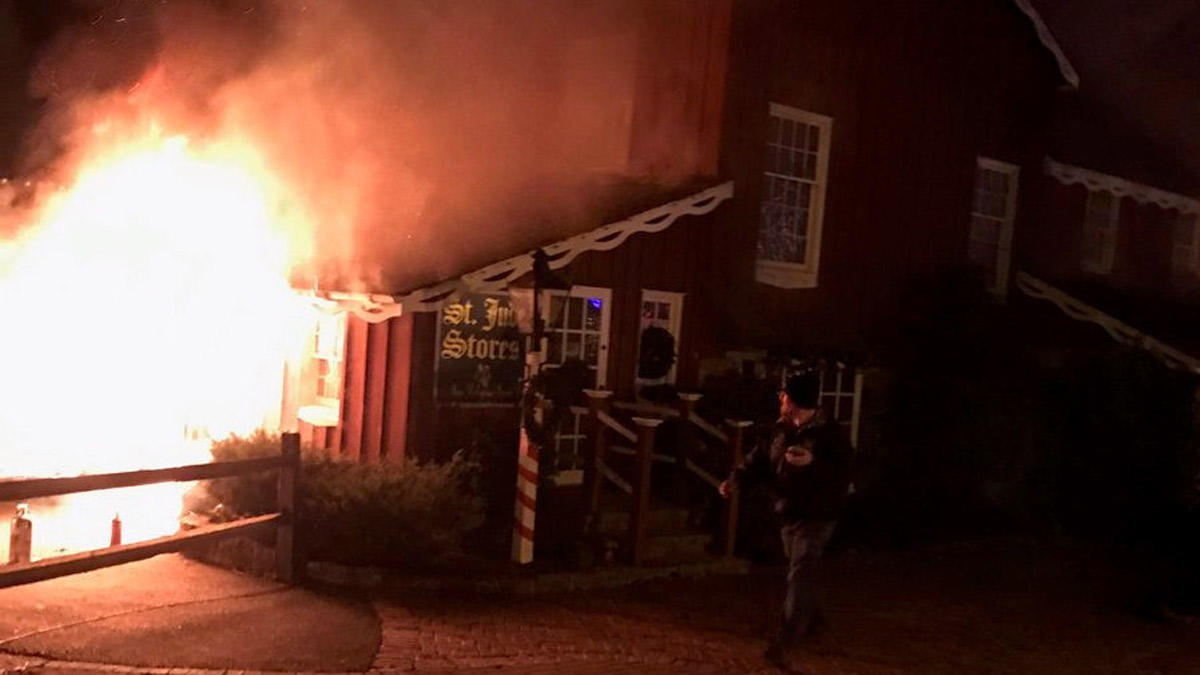
A backup generator is a power supply option mostly used for emergency situations/ winter storms, hurricanes or other natural disasters that cut the power supply to the home, like the recent fall storms that caused power outages throughout Pennsylvania small towns, such as Bristol, PA.
Although a generator is a very useful tool to have in these situations to keep your refrigerator running and avoid food waste, as well as keep areas of your house warm in the event of a severe winter storm, it is important to remember that an electric generator releases harmful and silently deadly fumes like carbon monoxide. Another hazard arises from the fact that generators run on gas (diesel or petrol) which is a very combustible resource.
Therefore, safety is an extremely important aspect that cannot be overemphasized when it comes to electric generators. HVAC Philly provides tips below to help ensure safety while using your backup generator:
- It is never advisable to utilize the generator indoors or in small confined spaces. This is because of carbon monoxide poisoning. It is a silent killer as CO (carbon monoxide) has no distinguishing smell such that it can remain thick and saturated in the immediate environment for hours, long after the generator has stopped working. It’s advisable then to power the generator far away from doors or any open space through which carbon monoxide could seep into the home or surrounding environment. Another option is to install battery-operated Carbon Monoxide alarms so that at the slightest contamination, you are aware. It also pays to invest in a backup battery so that safety is always a constant.
- Never let any water come in contact with the functioning generator as this can lead to electrocution. It is an electric appliance and should be treated with the utmost caution to avoid electric shocks. In the event of rainfall, it should be operated in a dry yet airy environment. Airy so CO doesn’t saturate the atmosphere. Another safety tip is that appliances should be connected to the generator with the right type of wires and connectors i.e. specially made extension cords, so that said appliances don’t get “shorted” or damaged due to the cord not been able to handle the power supply of the generator. The cords must be viable enough without tears or open rips.
- Fuel for your generator should be stored at a considerable distance from your home. As previously stated, fuel (diesel & petrol) is extremely combustible and should be treated as such. Also, never refuel the generator when it is still running. Turn the power off, let it cool off and then you can refuel it.
- It is advisable never to attempt “back feeding” with the generator. The act of plugging the generator into a wall outlet to power the home puts you and those in the home in danger of electrocution.
- Be sure to carefully read the manual that accompanies the generator so that you know the general dos and don’ts.
It is imperative you get a certified electrician to help with the backup generator when expert opinion and help is needed.
Safety is something you owe not only to yourself but those around you and your family. A backup generator is a serious piece of equipment that could do irreparable damage to life and property if not used in the properly.
For more FAQ about your HVAC system, be sure to follow HVAC Philly Blog, for helpful tips and information related to heating repair, heating maintenance and services provided to the greater Philadelphia, Bucks County, PA and Montgomery County, PA areas.
If you are in the greater Philadelphia, Montgomery County, or Bucks County, PA areas, HVAC Philly offers affordable, professional and expert HVAC services to commercial buildings and homes throughout the area. They have over 20 years experience and rated top ten HVAC companies in Philadelphia.
Heating Service areas:
Bristol, PA 19007
Bucks County
Cheltenham, PA 19012
Churchville, PA 18966
Elkins Park, PA. 19012
Fairless Hills, PA 19030
Feasterville, PA 19053
Fishtown, Philadelphia, 19125
Glenside, PA 19038
Graduate Hospital, Philadelphia, 19146
Holland, PA 18966
Horsham, PA 19040
Huntingdon Valley, PA
Jamison, PA 18929
Jenkintown, PA 19046
Langhorne, PA 19047
Levittown, PA
Montgomery County
Morrisville, PA 19067
Newtown, PA
Northeast Philly
Northern Liberties, Philadelphia, 19123
Queen Village, Philadelphia, 19147
Richboro, PA 18954
Rittenhouse, Philadelphia, 19102
Roxborough
Society Hill, Philadelphia, 19106
South Philadelphia, PA 19145
Southampton, PA 18966
University City, Philadelphia, 19104
Warminster
willow grove, PA 19090
Wyncote, PA
Looking for a first-class HVAC service? Contact us today! 215-725-6111



